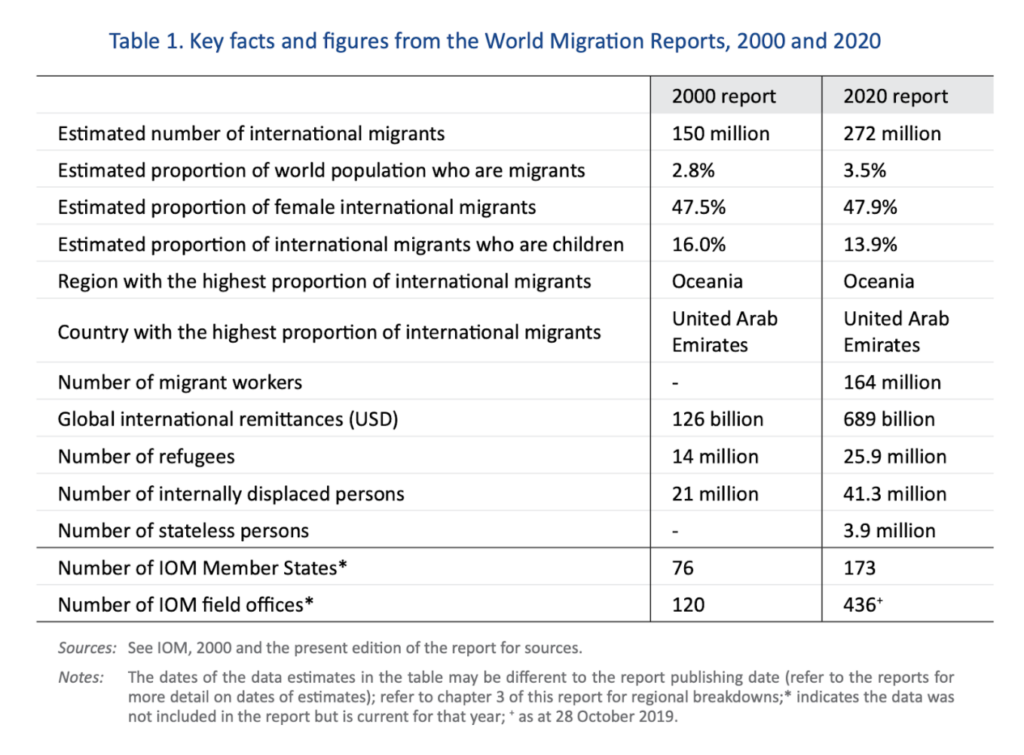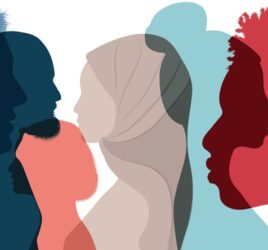
4. Who are the Globally Mobile? (MICN Missiology Series by Andrew Lupton)
Who are the Globally Mobile?

The globally mobile answer to a number of names, among them: serial migrants, global nomads, cross-cultural people, third culture people, expats, global citizens, cultural hybrids, global souls, and so on.1 In 2018 researchers from Finaccord published their annual report on Global Expatriates: Size, Segmentation and Forecast for the Worldwide Market.2 They reported that in 2017 the total number of expats worldwide amounted to 66.2 million. Their growth estimates from earlier reports were considerably outpaced as the compound annual rate has grown at 5.8% since 2013 when there were only 52.8 million expats.3 All things being equal, they forecast that global expats will reach 87.5 million by 2021. For the sake of reference points, France has a population of 65.2 million and Turkey just under 84.5 million as of 2020.4
While the globally mobile are typically defined as people who move internationally and at some point plan to move again, this population is a subset of a larger group of global migrants. According to the World Migration Report 2020 from the United Nations’ International Organization for Migration (IOM), the number of international migrants worldwide in 2019 was 272 million, or 3.5% of the world’s population.5 That population has nearly doubled from the 2000 report which counted 150 million international migrants.6 Today one in every 30 people classifies as an international migrant.7
Who are these international migrants? Nearly two-thirds of of international migrants are migrant workers. The next largest group are people who have been displaced due to conflict or disaster (41.3 million as of 2018), followed by Refugees (25.9 million as of 2018), stateless persons (3.9 million as of 2018), Asylum seekers (3.5 million as of 2018), and many “missing migrants” who die or go missing during their international journeys.8 See the IOM’s Table 1 above for other key statistics.
A New People Group?
Globalization has long held our attention as it describes the gradually homogenizing world around us. Futurologist Dr. Tom Sine writes that globalization is “homogenizing us into one huge McWorld macroculture in which every place looks like every other place. Local cultures, which often reflect more of the values of God’s kingdom than does the invading global commercial culture, are disappearing at an alarming rate.”9 Next generation ministry expert, Dr. Eric Larsen, often jests, “Welcome to the McWorld! May I take your order?”
If globalization is changing Main Street, then it must also be changing those who traverse its sidewalks. If locality is disappearing, then it follows that local people will gradually homogenize in Sine’s McWorld. Our world shrinks, borders fade, and mobility becomes our emerging reality, especially for the next generation. Global people are a growing population at the expense of local people.10 Lois Bushong, an expert in counseling for the globally mobile, posits, “No generation before now has had so many of its members simultaneously living in, between, and among countless cultural worlds as is happening today.” 11
Writer and author of The Global Soul, Pico Iyer, says that global souls don’t live within borders or particular cultures, rather it is the space between that they have learned to call home. Global souls have inhabited “many cultures all at once – and so lived in the cracks between them.”12 Why does this matter?
The Lausanne Movement defines a people group as, “A significantly large sociological grouping of individuals who perceive themselves to have a common affinity with one another.”13 Shared geography, language, history, and customs have historically glued people to one another. People groups distinguish themselves in terms of insiders and outsiders. “In other words, a people group calls ‘us, us’ and ‘them, them.’” 14
Though not bound by borders or language, the globally mobile is its own rapidly growing people group within the cracks of cultures. With a current population the size of France and growing soon to the size of Turkey, the global church should treat the globally mobile as a distinct and strategic people group to be reached and mobilized for God’s global mission. The church’s missional efforts ought to be aimed accordingly with healthy international churches as the strategic vehicles for such a mission. Thus, our task in building healthy partnerships with sending organizations is to inspire various members who identify as “us” in the global church to sacrifice missionally for the sake of reaching and resourcing “them,” the globally mobile.
Tune in next week as we begin to discuss life between the cracks of culture.
Andrew Lupton
1 https://globallygrounded.com/third-culture-kids/
3 https://paragonrelocation.com/new-report-shows-record-number-of-expats-worldwide/
4 https://www.worldometers.info/world-population/population-by-country/
5 https://www.un.org/sites/un2.un.org/files/wmr_2020.pdf, p. 3.
6 Ibid., p. 10.
7 Ibid., p. 23
8 Ibid., p. 23
9 From Mustard Seed Versus McWorld: Reinventing Life and Faith for the Future via Larsen, Eric, Mission NEXT: How the Church Can Reach a Global Generation, p. 112.
11 https://communicatingacrossboundariesblog.com/category/quotes/
12 https://globallygrounded.com/third-culture-kids/
13 https://www.lausanneworldpulse.com/perspectives-php/1320/09-2010



